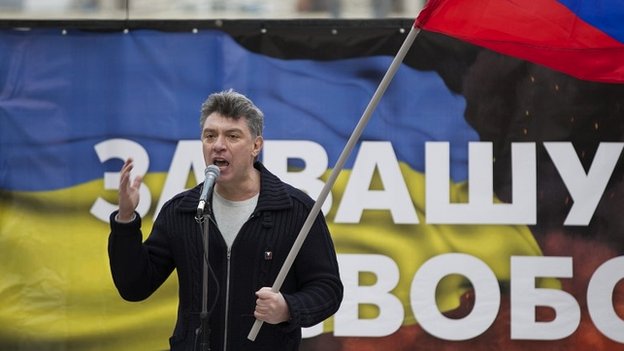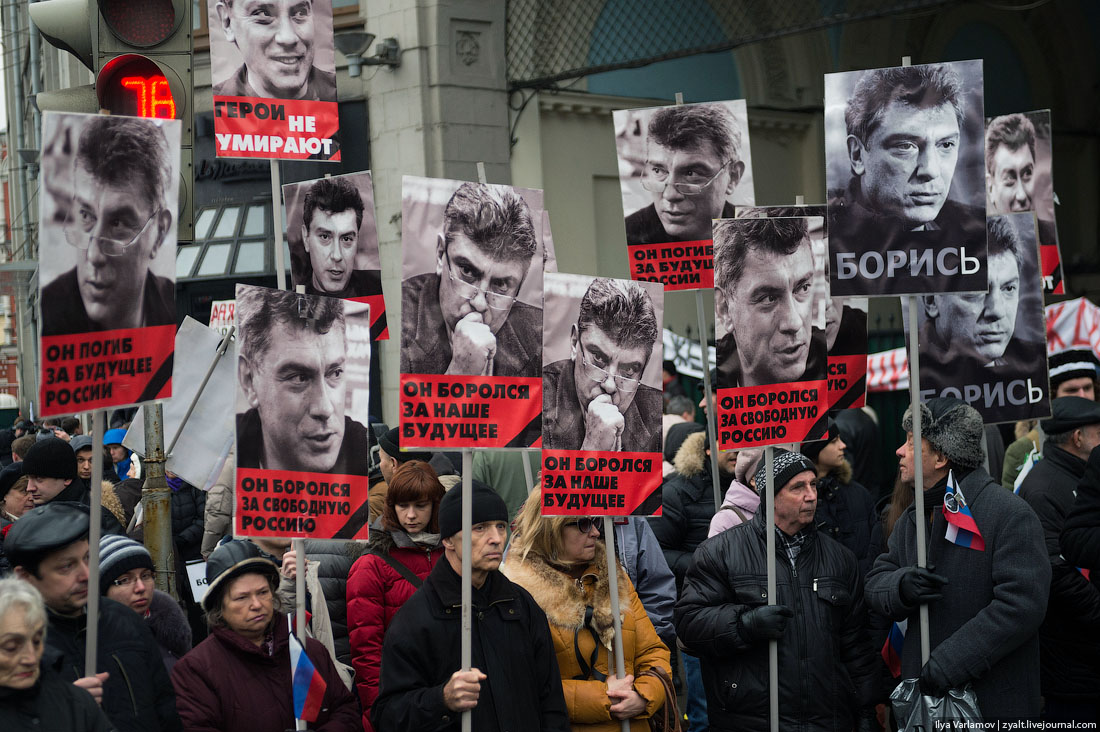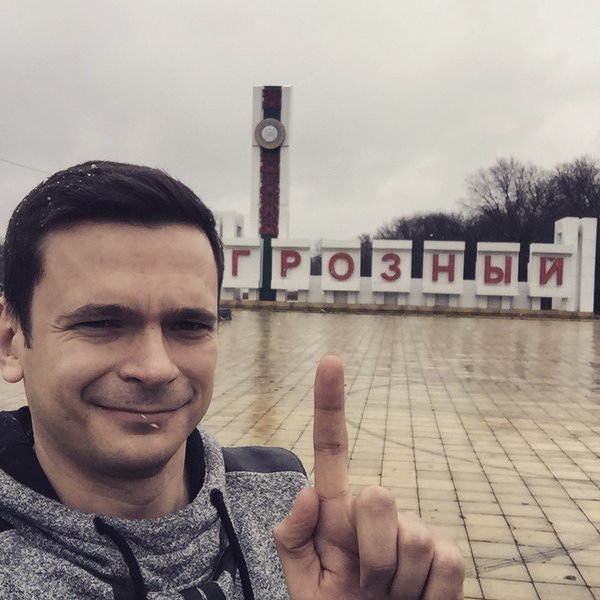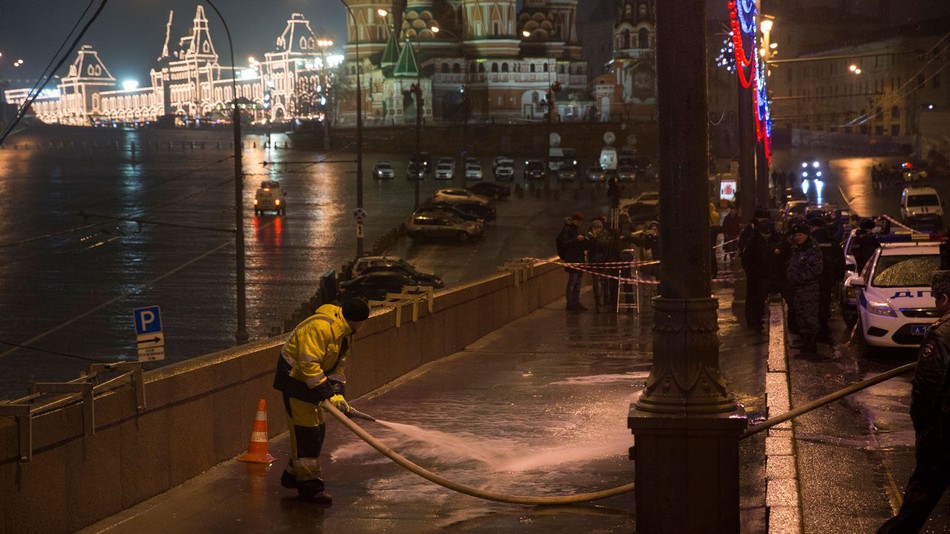Not being able to go home to your own country, to see your parents, to bury your loved ones or just visit their graves – these are probably the smallest of sacrifices today’s dissidents must bear. Especially those who actively come out against the war that the Kremlin unleashed against Ukraine. Some people sacrificed their freedom simply for posts in social media opposing the war. The reality is, everyone every day is forced to endure truly brutal slander, persecution and more.
In general, this is hardly a new situation. In Russia today, just as it has been in Russia throughout the centuries, particularly in the last century, the lives of the very best people have been deliberately destroyed, while the scoundrels and conformists go on to live relatively well.
I write this not to philosophize about the inequities of life. Life is and always has been basically unfair. Fortunately, people who have “experienced Russia” are cynical enough to have a good laugh at quests for justice. Natives of the former USSR learned a long time ago to substitute the word “price” for the word “injustice.”
All of these injustices are simply the price one pays for being able to have a clear conscience, a partial payment of the total cost. It’s the fee you must pay for the moral right to consider yourself NOT a scoundrel. And the price is exactly as much as you have paid, and not a gram less. That’s just how it had to be; you couldn't have accomplished anything otherwise.
This is the essence of the chronic age-old curse of Russia.
The Kremlin’s crimes impose on the most ordinary people – not the military or civil servants, simply common people – the hardest of choices, between two extremes: between a feat of bravery and an act of depravity. The pathological demands of this criminal regime pull into its orbit of criminality as many ordinary people as possible, drawing them into mutually assured participation in terrible acts and leaving little opportunity to avoid the bad choice. For some categories of people – soldiers, officials, journalists, human rights activists, teachers, judges, etc.– they have no choice at all.
In a country where a feat of bravery is required NOT to become an accomplice to a morally repugnant act, a third option is often unavailable. People are forced to perform brave and sacrificial acts, not to become a hero, but to avoid becoming complicit in pervasive collective crimes, simply because "they couldn’t do anything else.” Indeed, they had no choice.
In a country where a feat of bravery is required NOT to become an accomplice to a morally repugnant act, a third option is often unavailable. People are forced to perform brave and sacrificial acts, not to become a hero, but to avoid becoming complicit in pervasive collective crimes, simply because "they couldn’t do anything else.” Indeed, they had no choice.
How do you explain to a resident of a civilized western country that the government drives ordinary people into the most inconceivable and unacceptable of situations, demanding that they approve of the most savage criminal acts, while stigmatizing disapproval and dissent itself as a crime
How do you explain to a resident of a civilized western country that the government drives ordinary people into the most inconceivable and unacceptable of situations, demanding that they approve of the most savage criminal acts, while stigmatizing disapproval and dissent itself as a crime, where you are deemed a criminal for simply clicking “like” on a social media page? And those people for whom a clear conscience is stronger than fear or hypocritical conformity are forced to sacrifice everything–their security, their homeland, and their freedom–just to escape the overall "presumption of guilt," to rid themselves of their portion of the guilt all around them, one with which they find it impossible to live. Not because they dreamed of heroic deeds, but just to be able to keep living with a clear conscience. For this, they at times must pay an exorbitantly high price.
It is truly horrifying that from time immemorial Russia has forced citizens (both its own and others) to pay too high a price for things that always cost less in normal countries. The price of victory in World War II was a sea of soldiers’ blood, ineptly used as cannon fodder, and then another sea of blood and sweat from those who managed to return from German captivity only to be sent to the GULAG. All to calm the paranoid fears of an arrogant "leader." And so they’re sent to Valaam so they won’t be eyesores for the "leader." The price for the industrial surge: millions dead from hunger, tortured and exhausted from hard labor in the camps, where even children and teenagers were made to work. Stiffened corpses in the frozen earth. The suffocating train cars of multitudes of peoples who died before reaching their place of deportation. That is the "price" of the Soviet Union whose collapse has been called "the greatest geopolitical catastrophe"?
And that’s precisely the price that Russia is now making Ukraine pay. The price for freedom, for moving toward Europe, is war.
And that’s precisely the price that Russia is now making Ukraine pay. The price for freedom, for moving toward Europe, is war. Tanks, BUKs, grad missiles, mortars attacks on residential homes, destroyed Debaltseve, strikes on Mariupol, torture in the cellars of occupied Donetsk. That’s the price people are paying for their desire to choose their own path, their own vector of development, their own identity. Not a gram less.
We are driven again and again into choosing between extremes: freedom or war, heroism or depravity.
We are driven again and again into choosing between extremes: freedom or war, heroism or depravity. And the 10-15% of Russians who turn out not to have adapted to life in the swamp of ubiquitous depravity are involuntarily forced to become heroes. Although all they really wanted at the start was one thing: the opportunity to live a normal life. Yet, stubbornly, it turns out that not a single generation in Russia has been afforded such a luxury.
I’ve written before that Russians love to rebuke the West for being so “delicate," arguing with examples of the great heroism of the Russian people. Without disputing these examples, I want to remind our compatriots: this is not something to boast about. A normal society doesn’t have to give birth to heroes. Heroism is born in conditions of trauma, repression, betrayal, and cowardice. It’s tempered in persecution, crystallized in torture. It learns to love and to fight not by virtue of these conditions, but in resisting them. A feat of bravery is an indicator of an unhealthy society, the terrible conditions prevailing in it, the extremely high level of baseness. Heroism is the exceptional situation, and a true hero is not some superman fighter, but rather, the hero starts out a traumatized, crippled individual. The personal example that he sets is one of pain and hardship, a sacrifice that is the fate of few.
Troubadours who get carried away with the Romanticism of their feats forget that heroism is an extreme condition for the individual, and he doesn’t survive without its scars.
There is a controversial saying that in some ways is very appropriate: "Heroes are needed in the moment of danger; the rest of the time, they are dangerous." To paraphrase it, we can say: "Heroes are needed in times of misfortune; the rest of the time, they are misfortunate." A feat is always a rupture, and often payment for someone else’s baseness and wrongdoing. This is what breaks a person's ability to live a normal life.
The same problem faced by Russian dissidents now faces Ukraine: how to survive the loss, the pain, the tragedy of war and build a normal society, how to switch from a regime of constant struggle to one that builds a future.
And looking at the current state of Russian society, one can’t help but pose the question: what sort of example will all this leave behind for future generations? After all, 85% [Putin’s approval rating], that’s an example of cowardice, conformity, a bizarre mixture of indifference, delusion, and in some cases, conscious depravity. And the remaining 15% – this is again an example of the maimed, the poisoned, the traumatized survivors of loss and actions for which they clearly were not prepared. They just could not do anything else. Once again we find ourselves unable to set the standard norm, the example of the golden mean, the model of the life of a normal person in a normal society. Again we have not been allowed to develop a normal life because exceedingly brutal conditions have been put before us, requiring an inevitable choice between extremes. The same problem faced by Russian dissidents now faces Ukraine: how to survive the loss, the pain, the tragedy of war and build a normal society, how to switch from a regime of constant struggle to one that builds a future. After all, this is where our long-term victory is: Not simply to survive, or to endure sacrifice, but to learn to live with this experience. To love, to create, not to forget about our own lives. And most importantly - to be happy. Otherwise, without this crucial skill, all that exorbitant price we had to pay will have been in vain.
Related:
- Occupied Crimea is Moscow's test laboratory for repressions, Stelmakh says
- Friday May 13th was Putin's Kristallnacht, Russian political refugee says
- New climate of fear makes Russian polls ever less reliable, Moscow sociologist says
- Putin government now behaves like 'any other occupation regime,' Moscow commentator says
- Russia's criminalization of protest: Ildar Dadin's appeal and Article 212.1
- Beaten, drugged, electrocuted. Ukrainians tortured into "confessing" of Chechnya crimes in Russia
- Torture and confessions in Russia
- 'It's important the world knows about inhuman torture used against Ukraine's POWs,' says father
- Russian politician: Murderers of opposition figures in Russia rarely caught and those behind them almost never
- Russian oppositioner: 'Zombification of society keeps Putin in power but will destroy Russia'
- Activists in Russia petition international community to investigate Boris Nemtsov assassination
- Nemtsov feared Putin would kill him and now Kremlin leader has





